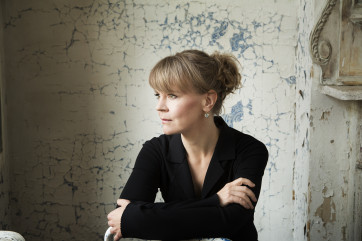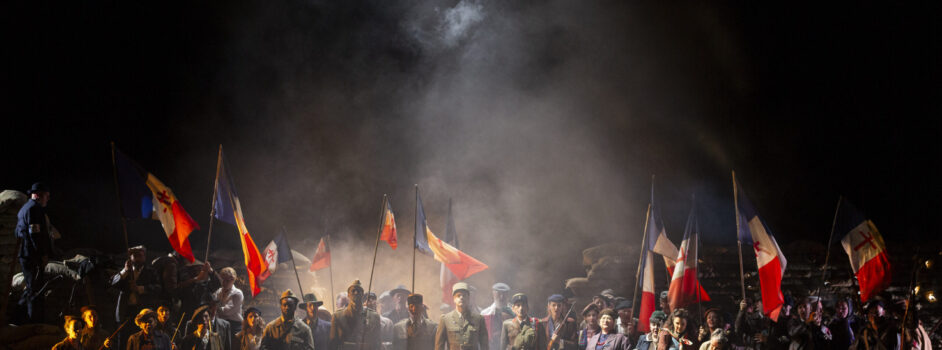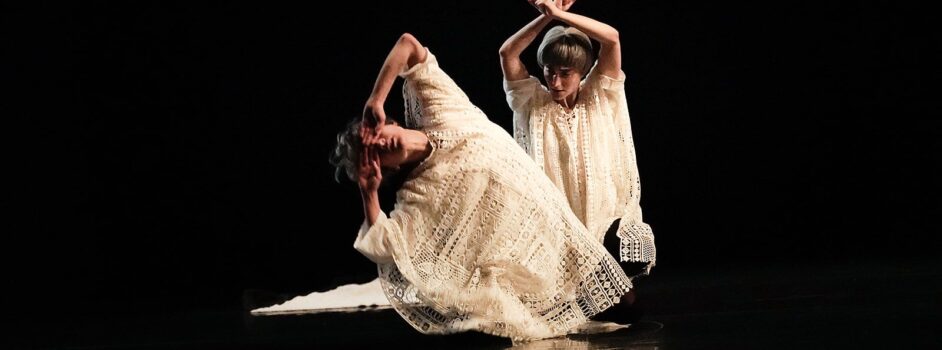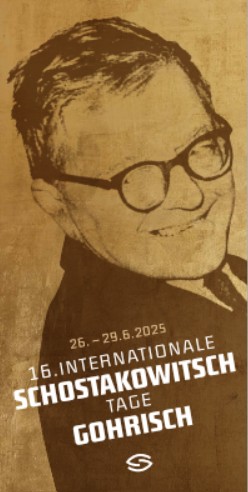Plus de détails
Helsinki. Helsinki Music Center. 23-IX-2015. Anatoly Lyadov (1855-1914): De l’Apocalypse, op. 66; Dmitri Shostakovich (1906-1975): Violin Concerto No. 2, op. 129; Pyotr Tchaikovsky (1840-1893): Symphony No. 5, op. 64. Frank Peter Zimmermann: Violin, Helsinki Philharmonic Orchestra, Susanna Mälkki: conductor.
 With Mälkki on the podium, the Helsinki Philharmonic has to be heard to be believed.
With Mälkki on the podium, the Helsinki Philharmonic has to be heard to be believed.
The appointment of Susanna Mälkki as the next music director of the Helsinki Philharmonic has been met with an almost overwhelming sense of elation among Helsinki audiences. Nevertheless, there may be a sense of fear in some corners that contemporary music will be featured even more prominently with Mälkki on the podium. A brief review of Mälkki's past and future programs with the Helsinki Philharmonic will reveal that the standard repertoire is far from neglected, and this evening's performance was further evidence of Mälkki's approach to programming.
The program opened with a relative rarity, Lyadov's De l'Apocalypse. Despite the work's title, this was not a particularly cataclysmic description of the end of days. On the surface, one could hear hints of Scriabin's colorful and crystalline orchestration, the lugubrious melodies of Mussorgsky or Rachmaninoff, and perhaps a bit of Strauss' Tod und Verklärung. Russian Orthodox chant is also apparent. Despite these similarities, Lyadov's individual voice is clearly present.
Mälkki brought clarity and polish to this performance. Ensemble was excellent; it seemed as though Mälkki and the expanded orchestra were breathing as one.
While performances of Shostakovich's Violin Concerto No. 2 are not unheard of, performances of this work are considerably less frequent than the composer's first essay in this genre. Perhaps it is the darker and more introverted nature of this work which audiences find elusive.
The soloist in this evening's performance was Frank Peter Zimmermann, who brought a highly personal and somewhat extroverted approach to this work. The opening movement was taken at a fairly brisk tempo; Zimmerman's opening line was played with warmth but was still somehow stoic. The central section was especially sprightly. In the introspective second movement, Zimmermann's focused tone was an intense glow in the darkness. The transition between the second and third movements was particularly sardonic and biting. In the third movement cadenza, Zimmermann brought not only virtuosity but also a broad spectrum of colors and characters; this was arguably the highlight of this performance. Mälkki's orchestral accompaniment was intense but nevertheless appropriately restrained.
Following the break came a Tchaikovsky warhorse, the Symphony No. 5. Under Mälkki's direction, the quiet, clarinet-led opening had a sense of great expectation. Textures were taut and lean, stripped of romantic excess, but light and airy when appropriate. The opening of the second movement was painfully beautiful in its simplicity. The third movement had an appropriate lilt, but nevertheless featured tight passagework, particularly in the rapidly scurrying counterpoint. The final movement was celebratory, never overly bombastic, and provided a satisfying culmination to the work's journey.
Warhorses are easy to take for granted. Despite this work's popularity and frequent appearances in concert, under Mälkki's guidance this music sounded fresh, vital, and just plain exciting. With Mälkki on the podium, the Helsinki Philharmonic has to be heard to be believed, and performances such as this one are probably making Helsinki audiences even more impatient for her to begin her tenure as Music Director.
Photo Credit Susanna Mälkki: Simon Fowler
Plus de détails
Helsinki. Helsinki Music Center. 23-IX-2015. Anatoly Lyadov (1855-1914): De l’Apocalypse, op. 66; Dmitri Shostakovich (1906-1975): Violin Concerto No. 2, op. 129; Pyotr Tchaikovsky (1840-1893): Symphony No. 5, op. 64. Frank Peter Zimmermann: Violin, Helsinki Philharmonic Orchestra, Susanna Mälkki: conductor.






